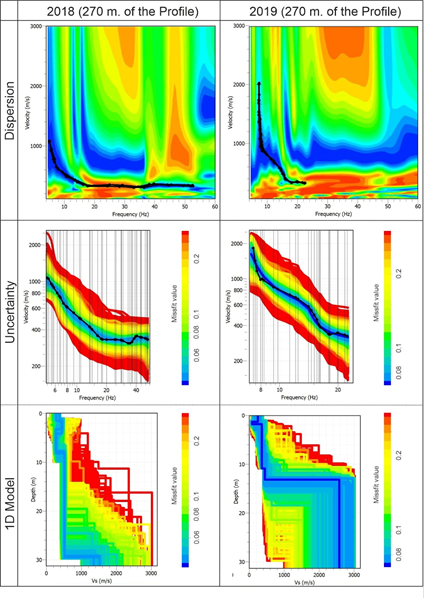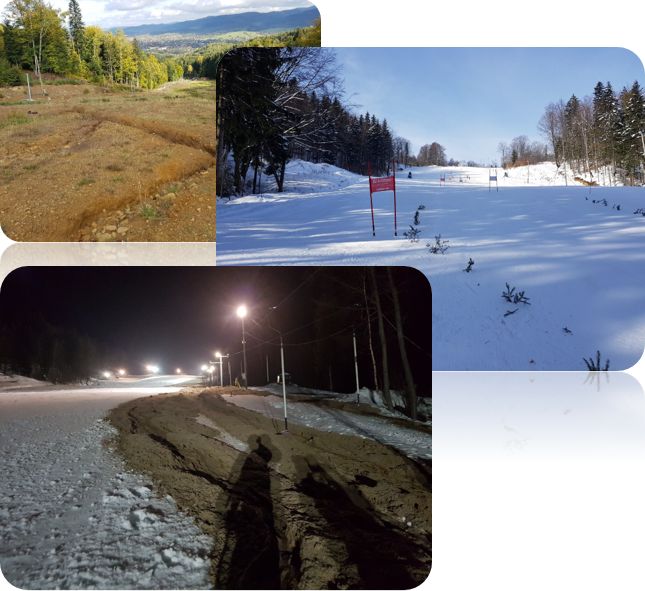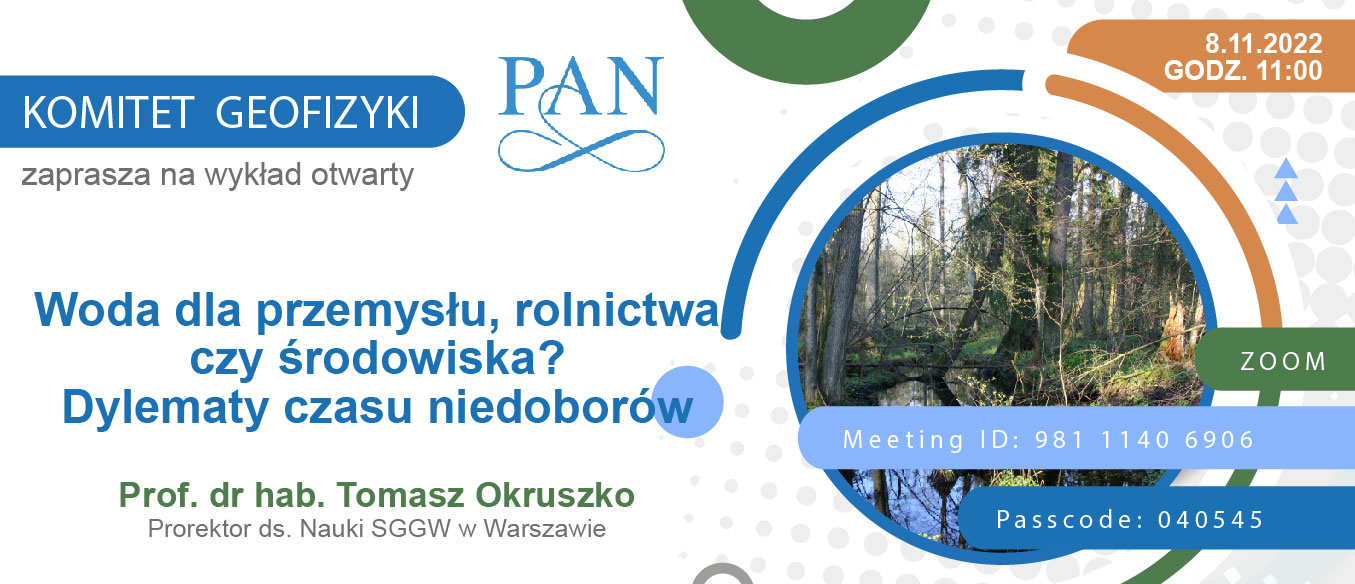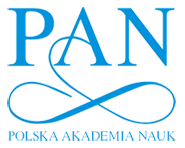.
Geophysical research in solving civilization problems relevant to Poland
Marek Jarosiński, Janusz Krzyścin, Zbigniew Ustrnul, Krzysztof Kochanek, Tomasz Janik
In view of the challenges faced by geophysical research in the future decades and the observed decline in interest in this field of study in Poland, it is necessary to mobilize the geophysical environment. One of the main causes of the crisis in the popularity of this field of study are changes in the economic paradigm, in which an important determinant and goal of activities is the declared departure from fossil fuels, especially coal and oil. Obviously this has a direct impact on the prospects of geophysical research, whose main contractor in global scale is the oil industry. With the depletion of the best available deposits, there is a need to reach for deposits that were increasingly difficult to discover and exploit, which contributed to the progress in geophysical research methods that followed the development of technology and information methods - the basis of modern geophysical analyses.
The announced definitive departure from fossil fuels coincided in Poland with the end of the shale-gas boom and the announcement of the program of resigning from coal mining. These announcements aroused the belief that the demand for geophysical research will also expire in the coming years together with the prospects for financing such research. However, this belief is wrong. A significant stream of funds will be directed at the development of geophysical research on a global scale, and the current sponsors of utilitarian geophysical research will occupy new niches on the market, e.g. in the accumulation of energy, storage of greenhouse gases and the search for raw materials, the lack of which is increasingly felt by the most developed economies. Along with the growing awareness of the deepening climate crisis and the destruction of the natural environment engulfing the planet, the need increases to recalculate the environmental costs of economic activity, in which broadly understood geophysical sciences can undoubtedly help.
Geophysical analysis of huge datasets requires modern computational methods such as numerical modelling, machine learning and artificial intelligence. The development of these fields will therefore be necessary, but also a difficult challenge for the scientific community in Poland.
In this work, we will mainly indicate the prospective areas of the economy and the science, related to the broadly understood energy transformation, which requires a significant share of geophysical research. The review of the issues and methodology of current geophysical problems and proposed solutions has been arranged in accordance with the directions of research in the field of earth sciences, with the tasks that seem to be the most promising and/or scientifically attractive subjectively highlighted.
The text deals with issues related to climatological, hydrological and hydrogeological, environmental, geological hazards, renewable and non-renewable energy sources, waste storage, energy storage, critical raw materials and the structure and physical condition of the earth's crust.
The entire article (in Polish): LINK
.
Analogies between shallow geophysical imaging in polar regions and geophysical observations in Central Europe
Progressive climate change has become a growing problem not only in the polar regions, but also in the temperate climate of Central Europe. The issue of global warming in terms of circumpolar areas has been noticed and thus discussed for years. The direct observations of temperature, pollution and tidal changes are of key importance at the moment. However, already on the scale of near-surface studies in Europe - limited to the first 300 m of the rock medium - a number of similarities to the response of polar regions to climate change can be observed. Particularly important is the change in precipitation characteristics in autumn and winter in mountainous areas.
As in the polar regions, it leads to hydrological changes in the geological structures. A particularly representative case are high-altitude landslides, where once stable areas are beginning to be susceptible to triggers. The result is an increased risk of geohazards. As in the case of polar research, hydrological changes reach much deeper than thermal changes. Their observation by geophysical methods in the time-lapse scheme reveals a significant depth of the changes.

In the case of polar studies, they affect the active layer of permafrost, which increases during summers year by year. In landslide studies, excess water seeps deep, increase the volume of the earth mass more actively participating in the slip by activating slip planes located at considerable depths. An additional factor amplifying this type of threat is the anthropogenic response, which in its original assumption is to oppose such destructive forces. Special cases include water retention, artificial snow making and incorrectly performed drainage. The final effect is the creation of additional triggering factors by adding additional geotechnical loads to the slopes.

The described problem will be an important research issue, the scale of which will temporarily cover larger and larger areas and/or natural and artificial objects. The development of appropriate methods of research, monitoring and opposing or adapting the environment to the ongoing climate changes is one of the key issues of modern geological sciences.
By Artur Marciniak, PhD
.
We are pleased to invite you to an open lecture by Professor Tomasz Okruszko,
Vice-Rector for Science at the Warsaw University of Life Sciences

.
The IV National Hydrological Congress
The IV National Hydrological Congress under the patronage of the Association of Polish Hydrologists and the Hydrological Commission of the Polish Geographical Society will be held in Warsaw on 21-23 September 2022. As before, the Congress will be hosted at the Warsaw University of Life Sciences (SGGW). The Congress gathers Polish hydrologists and is the largest scientific event of such kind in Poland. More information about the Congress here: https://kongreshydrologiczny.urk.edu.pl/
.
Yet another success of the Acta Geophysica journal
Dear All,
on 28th June 2022, Clarivate Analytics announced the latest issue of the Journal Citation Reports with Impact Factors for 2021.
We are pleased to inform that the flagship journal of the IG PAS, Acta Geophysica, published together with the Committee of Geophysics PAS, achieved the highest impact factor so far: IF2021 = 2.293, IF5_year = 1.960, thus ranking in the third quartile (Q3) of the most valuable journals in the GEOCHEMISTRY & GEOPHYSICS category. Compared to last year's statistics, this result is higher by: 0.235 and 0.303, respectively (IF2020 = 2.058, IF5_year = 1.657). The growing trend undoubtedly proves a significant increase in the content-related level and recognition of the journal in the scientific community.
We are also proud of the high score in the SCOPUS ranking, in which Acta Geophysica obtained Cite Score2021 = 3.4 and SNIP2021 = 0.946.
Sincerely thanks to all readers, authors and reviewers, without whom the success of the journal would not be possible. We encourage you to read, publish and cite our articles. Let’s hope that thanks to our continued efforts, we will be able to achieve an even better result in the future.
More statistics about Acta Geophysica available here.
Editorial Board of Acta Geophysica
.
The General Assembly of the European Geophysical Union (EGU):
May 23-27, 2022
In Vienna and online, on May, 23-27, the General Assembly of the European Geophysical Union (EGU) will be held for the first time after a two-year break in a hybrid form. As usual, hundreds of sessions were planned, to which a dozen of thousand speeches on topics related to Earth and environmental sciences were submitted. Detailed information about the conference can be found here.
.
The Committee is a partner of the conference Hydrogeology in practice – practice in hydrogeology
May 23-25, 2022, Chęciny
On May 23-25, 2022, the third edition of the conference Hydrogeology in practice – practice in hydrogeology will take place at ECEG "Rzepka" in Chęciny. The Committee on Geophysics of the Polish Academy of Sciences is a partner organization of the conference. More information here.
.
Honorary patronage of the Committee of Geophysics PAS in the Earth: Otherworld project
We are pleased to announce that the Committee of Geophysics of the Polish Academy of Sciences has been the honorary patron of a project organized by the Polish Association of Physics Students under the name: Earth: Otherworld, whose aim is to conduct geophysical research and apply technologies used in the study of the Earth's magnetic field during the simulation of the Martian mission in Habitat Marte in Brazil.
The Institute of Geophysics of the Polish Academy of Sciences, as a leading scientific and research institution in geophysical sciences (including magnetic and magnetotelluric research), eagerly follows and supports innovative scientific projects, which in this particular case may be important for the possibility of detecting a residual magnetic field on the Red Planet. The consequence of such a discovery could be evidence of the occurrence of the phenomenon of magnetohydrodynamic dynamo, and thus evidence of the occurrence of plutonic phenomena in the interior of the planet.
The Committee of Geophysics of the Polish Academy of Sciences wishes good luck in the implementation of the project!
.
APPEAL
TO ACADEMICS AND INTELLECTUAL ELITES REGARDING RUSSIA'S AGGRESSION TO UKRAINE
In connection with the Russian military aggression to Ukraine, the Committee on Geophysics of the Polish Academy of Sciences supports the appeals of the broad scientific community:
APPEAL TO ACADEMICS AND INTELLECTUAL ELITES REGARDING RUSSIA'S AGGRESSION TO UKRAINE
Appeal to academics and intellectual elites regarding Russia's aggression to Ukraine
March 31, 2022, Warsaw



